Sacred Chickens
Menu
SACRED CHICKENS
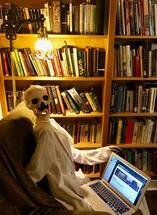 Here are some books we thought you might be interested in reading. Jarad handles the apocalyptic reading this week. We seem to have the apocalypse on our minds. I wonder why? Julie chooses hers based on character development and a well developed world. Morty, as usual, wants you to think a little harder. Just click on the image of the book to if you want to buy and you're off to the apocalypse, to hang out with a grumpy math teacher, or to consider the psychology of fairy tales. Have fun! Stay safe!  Jarad has shockingly run into people who have not read The Stand by Stephen King. He thinks this is a travesty. He loves it for the complexity and world building. Also...Apocalypse people! Wouldn't hurt to start thinking about that.
0 Comments
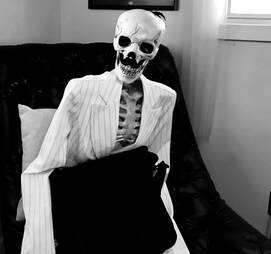 MORTY IS DYING TO GIVE YOU MONEY FROM HIS MONEY BAG! Click here or on Morty to find out how to enter our fiction contest. Cash Prizes! No entry fee! You hold the copyright! Why? Because Morty loves you. 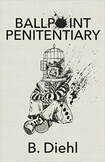 In his second volume of poetry, B. Diehl offers us a serious and cerebral exploration of depression, among other things. The poems are thought-provoking and at times read like a personal diary entry. What I really enjoyed about the poetry was that it felt like it wasn’t written for anyone in particular; that is, it reads like someone’s own personal thoughts, which I think makes it more relatable than if it was pandering to a specific audience. John Stuart Mill said that poetry is, “feeling confessing itself to itself in moments of solitude and embodying itself in symbols which are the nearest possible representations of the feeling in the exact shape in which it exists in the poet’s mind.” If I were to sum up the collection, I would probably go with something similar to that definition. It’s very much internalized and self-reflective.
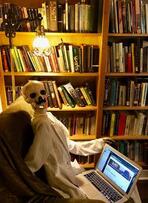 Here are some books that we think you may find interesting. Julie's picks illustrate how the theology of the apocalypse came to be, along with a compelling critique of the worlds worst books. Morty picked a mind-bending fairy tale, and Jarad picked a book that imagines a dystopian society in which women have no rights. So...have fun I guess? (It seems like that kind of weekend.) Just click on the image of the book to if you want to buy and you're off to the apocalypse, or some dystopia, or a weird fairyland. Have fun! Stay safe!  Julie Recommends: Jeff Pugh's Theology after You've been Left Behind There are narratives we read for fun...and then there are narratives that shape our lives. There is a very historically recent interpretation of the biblical Book of Revelations and the coming apocalypse that affects you whether you know it or not because it deeply affects US policy. Jeff Pugh's book is a very concise and readable overview of exactly what that theology is and how it came to be. AND: 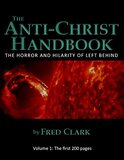 The Anti-Christ Handbook by Fred Clark Fred Clark's handbook is a funny and insightful critique of "the world's worst books," the Left Behind Series. He goes chapter by chapter and helps the reader understand what is being said and commiserates about how badly it's written. But more than that, this book is a funny and wise critique of all that's wrong with evangelical Christianity in our current era. There are some stories that write you. This information is critical to understanding our current political climate
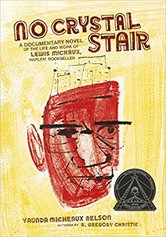 No Crystal Stair is the real story of the first prominent black bookseller in New York City, Lewis H. Michaux. The story is told in a biographical style and focuses on the middle aged and elderly portions of Lewis’ life, and on the surface, it seems rather odd to market this book in the young adult novel; however, I believe that the publishers made a smart decision. Many young adult books are driven by a sense of revolution and social justice, just as Lewis is. Lewis also had a deep passion for imparting black history to people of all ages, but especially young people. I feel that he would be deeply pleased that his story is being marketed to young adults.
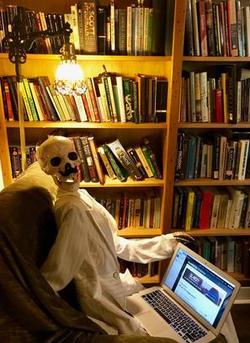 Here's what the chickens are reading. Julie, Jarad, and Morty have all run across some items that made them think, or laugh, or cry and they'd like to share them with you so that your brain can have all the same sort of exercise. This week, Julie chose a book that illustrates the dangers of demagoguery and fascism, something we should constantly be reminded of. Jarad chose a love story that proves that to survive high school, you don't always have to be on the straight and narrow, and morty chose a novel that looks at just how much bullets destroy. Jarad:
-What to read: Simon vs. the Homosapiens Agenda by Becky Albertalli -Why read it: This heartwarming love story, which is now also a film, centers around a closeted gay character trying to survive high school. Its an adorable rom-com that not only celebrates diversity, but also proves its necessity. If you bogged down by the ugliness of the world, this book will surely brighten your day. Julie: -What to read: In The Garden of the Beasts by Erik Larson -Why read it: This book is incredibly timely. Erik Larson, the author, follows the career of the US ambassador to Germany from 1933 to 1937, when he lived in Berlin with his family. The ambassador and his family slowly become aware of the growing threat of Nazi fascism. The book is interesting because it shows how rapidly people can be swallowed up by the needs of a demagogue who plays on their emotions without even realizing it. Morty: -What to Read: Deadeye Dick by Kurt Vonnegut -Why You Should Read It: A thoughtful look at how a gun and its bullet cut a trajectory through two families and an entire community. It has the Vonnegut black humor and pulled back perspective that make you rethink all the things you thought before. If you haven't read this one...I know it's old....but I'm dead so whatever...check it out. 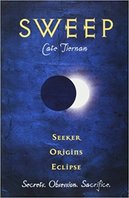 In this second three volume novel, we see the main character, Morgan Rowlands, a witch who has just discovered her abilities, progress in her training while at the same time trying to come to grip with a shocking betrayal. I enjoyed the first volume but didn’t find enough to say about it to formulate a review. This second installment had more depth and plot development, so there is more to say. For the most part, it is an enjoyable read; however, there were times when I felt the cliché of the love triangle, and the main characters’ whining was sometimes overplayed, but that it made it a little more realistic, since the novel centers around teenagers. However, the ending was the most problematic for me; one of the main antagonists is suddenly and miraculously gone, and it seemed a little rushed and hurried. Overall, though, it was a good read, and the plot kept me going.
|

Click Photo above to buy ebook or paperback from Amazon.
Here's the link to Barnes and Noble Or order through your favorite independent bookstore! Categories
All
|
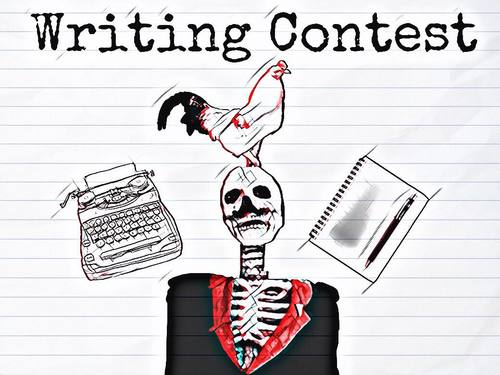
 RSS Feed
RSS Feed